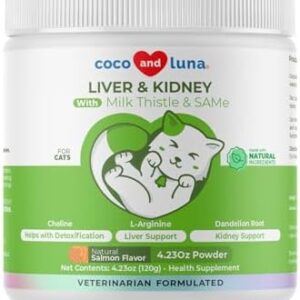
As cat owners, we all want the best for our feline friends. We want them to be happy, healthy, and thriving. But sometimes, our beloved kitties can face health issues that leave us feeling confused and concerned. Understanding feline health issues can help us better care for our cats and ensure they live long, healthy lives.
One of the most common health issues that cats face is obesity. Just like humans, cats can become overweight from overeating and lack of exercise. Obesity can lead to a variety of health problems, including diabetes, arthritis, and heart disease. To prevent obesity in your cat, be sure to feed them a balanced diet, provide plenty of opportunities for exercise, and monitor their weight regularly.
Another common health issue in cats is dental disease. Just like humans, cats can develop plaque and tartar on their teeth, which can lead to gum disease and tooth decay. To prevent dental issues in your cat, be sure to brush their teeth regularly, provide dental treats or toys to help clean their teeth, and schedule regular dental cleanings with your veterinarian.
Urinary tract infections are another common health issue in cats. This can be a painful and uncomfortable condition for your kitty. Symptoms of a urinary tract infection include frequent urination, blood in the urine, and straining to urinate. If you suspect your cat has a urinary tract infection, be sure to seek veterinary care immediately. Your vet may recommend antibiotics or other treatments to help your cat feel better.
Fleas and ticks are also common health issues that can affect cats. These pesky parasites can cause itching, irritations, and even transmit diseases. To prevent fleas and ticks in your cat, be sure to use a monthly preventative treatment, regularly check your cat for any signs of parasites, and keep your home and yard clean and treated for pests.
Cats can also develop allergies, just like humans. Allergies in cats can manifest as skin irritations, ear infections, or gastrointestinal issues. Common allergens for cats include certain foods, pollen, and dust mites. If you suspect your cat has allergies, be sure to work with your veterinarian to identify the cause and develop a treatment plan.
Kidney disease is a serious health issue that can affect cats, especially as they age. Chronic kidney disease is common in older cats and can lead to symptoms such as increased thirst, weight loss, and vomiting. To help prevent kidney disease in your cat, be sure to provide plenty of fresh water, feed a balanced diet, and schedule regular check-ups with your veterinarian.
Another common health issue in cats is diabetes. Diabetes in cats occurs when their body cannot regulate blood sugar levels properly. Symptoms of diabetes in cats include increased thirst, increased urination, and weight loss. If you suspect your cat has diabetes, be sure to seek veterinary care immediately. Your vet may recommend insulin injections, dietary changes, and monitoring blood sugar levels.
Hyperthyroidism is another health issue that can affect cats, especially as they age. Hyperthyroidism occurs when the thyroid gland produces too much thyroid hormone. Symptoms of hyperthyroidism in cats include weight loss, increased appetite, and restlessness. If you suspect your cat has hyperthyroidism, be sure to seek veterinary care immediately. Your vet may recommend medications, dietary changes, or other treatments to help manage the condition.
As cat owners, it’s important for us to stay informed about common feline health issues and how to prevent and treat them. By understanding the signs and symptoms of common health issues, we can better care for our cats and ensure they live long, healthy lives. Remember to always consult with your veterinarian if you have any concerns about your cat’s health. Your vet can provide guidance, support, and treatment options to help your kitty feel their best.






